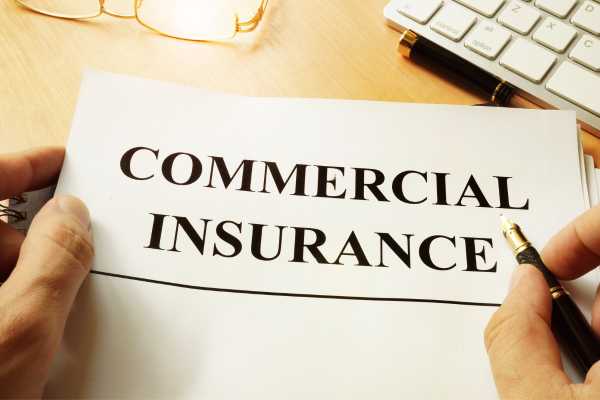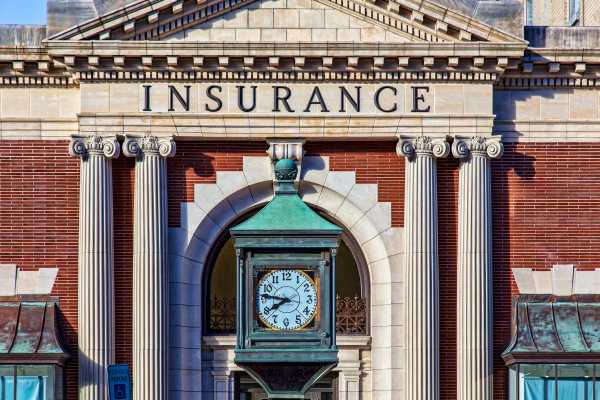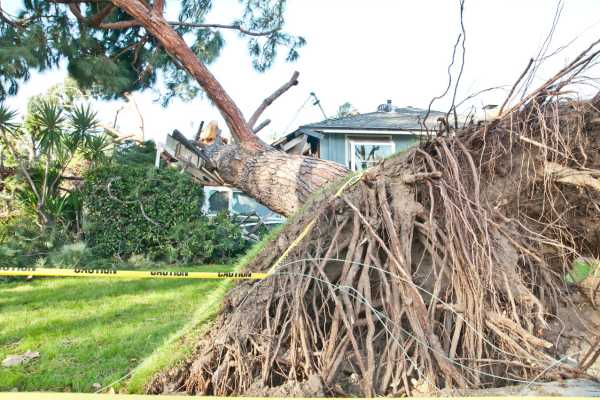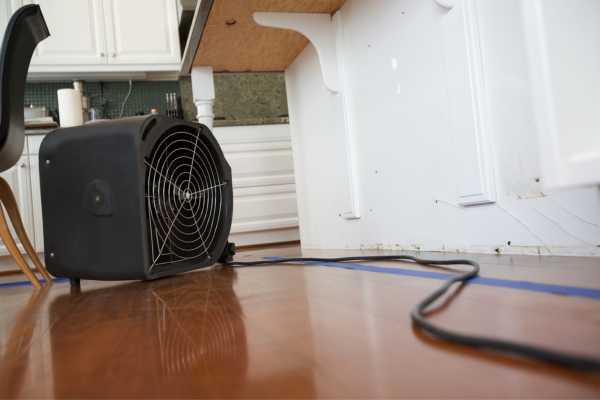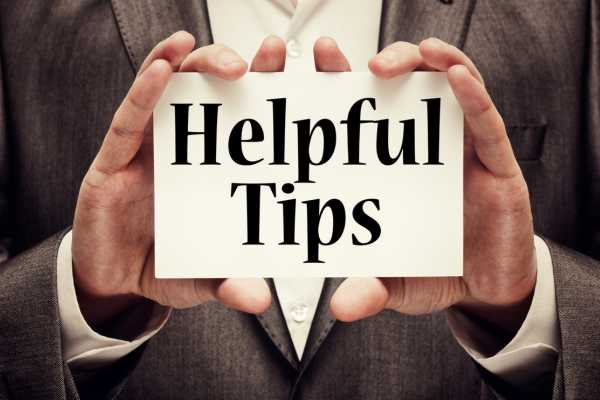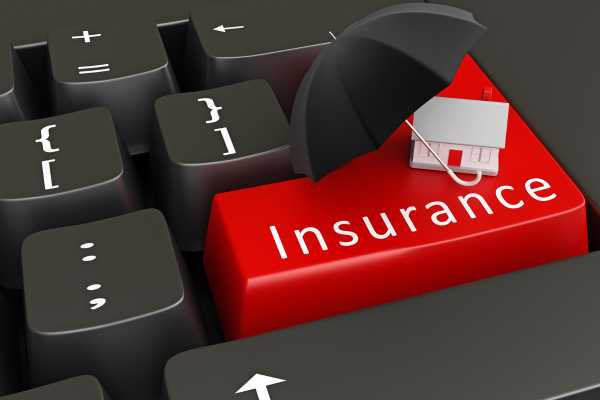|
Setting up a business requires a substantial number of resources, and over time, organizations can accumulate a variety of assets, including inventory, machinery, a growing workforce, and commercial property.
It is important to keep in mind that you need an insurance policy for any property you acquire. It is a must to protect the building, its contents, exterior fixtures, and much more. You may be all set with your insurance policy and have done everything right. However, when it comes time to file an insurance claim for your commercial property, many individuals are not sure where to begin. It is important to properly understand the basics of commercial property insurance policies in South Florida to properly file an insurance claim. General Commercial Property Insurance Policy Coverages The primary reason to have commercial property insurance is to financially safeguard your company’s physical assets in the event there is damage that results from a fire, broken pipe, hurricane, windstorm, theft, vandalism, etc. Below are some common coverages in commercial property insurance policies. The Building Commercial property insurance policies generally include an amount of coverage for the building or structure. There is often coverage for completed additions, interior or exterior fixtures, and permanently installed machinery and equipment. Business Personal Property Coverage for Business personal property (BPP), does not normally include the building but rather provides coverage for the commercial property’s contents, such as: ● Furniture and fixtures ● Machinery and equipment ● Personal property owned and used in the business ● Upgrades made to a rented space ● Leased personal property There may be coverage for the building when there are permanent improvements that are installed in a rented space. Personal Property of Others Commercial property insurance also covers the personal property of others and is often an overlooked element of this type of insurance. This means that other individuals’ property, under your care, control or custody may be allotted an amount of coverage in your commercial property insurance policy. Understanding Commercial Property Insurance Claims When it comes to filing an insurance claim for your commercial property, it is important to begin the process and accurately report the property damages as soon as possible after the event occurs. Public adjusters are a great third-party resource to help you efficiently navigate the claim, take the appropriate action, and complete the required documents needed. When filing an insurance claim for your commercial property, it is important to retain copies of all documents that support your claim and provide them to your public adjuster and other appropriate parties. This could include a forensic accountant’s findings or pictures taken of the damage at the time of the event. Hiring a public adjuster who will look out for your best interests and who can verify the damages and provide the proper guidance for your claim is essential. The insurance company will have an adjuster to represent their interest, and you should have one to represent yours. Filing a Commercial Property Insurance Claim To help ensure a smooth claims process and receive the maximum claim settlement you deserve, you should hire a public adjuster who will advocate for you throughout the entire claims process. At Reliant Insurance Adjusters, we treat every client’s property claim as if it is our own. Other companies may offer similar services, but we are dedicated to providing the professionalism, knowledge and experience to get you the highest possible settlement for your claim. Contact us today to help you with your claim.
0 Comments
We received a call regarding a plumbing leak under the kitchen sink that caused water damage to the cabinets.
The homeowner asked if she should stop using the sink. I explained that she has a duty under her insurance policy to prevent further damage to her property and confirmed she should stop using the sink. She said that because the damage was already there, she didn’t see the harm if she continued to use her sink. Her reply shocked me for a moment. Avoiding A Claim Denial An insurance policy is a contract with your insurance company. There are specific conditions that must be complied with, or you risk the possibility of having your claim denied. Examples Of Policy Conditions:
Mitigate Your Damage It is important to stop the leak as quickly as possible to prevent further property damage. Contact a reputable plumber to make sure the leak is stopped and repaired. Make sure to keep any broken plumbing parts that are replaced. This is evidence and proof of repair that your insurance company may request. Understand Your Policy & Know What’s Covered Lack of knowledge is no excuse for not understanding and knowing your responsibilities under your insurance policy or what is covered and excluded. We Are Here To Help At Reliant Insurance Adjusters, we have all the skills necessary to understand an insurance policy and to make sure you are properly paid for your property damage insurance claim. We are also proud longtime members of the Florida Association of Public Insurance Adjusters (FAPIA). Whether you have a new, underpaid, or denied insurance claim, we can help. We treat every client’s claim as if it were our own. Call us today. When you sustain property damage in South Florida, and you file an insurance claim, hiring a knowledgeable and experienced public adjuster is crucial to ensure a smooth and successful insurance claim process.
Simply stated, Public Adjusters are insurance experts that play a significant role in representing policyholders and help obtain fair and equitable claim settlements. Tips to help you choose the right public adjuster for your claim:
Know What You Are Signing An established public adjuster should have a network of professionals, such as engineers, contractors, and specialists, to support the claims process if needed. Carefully review the terms and conditions of their contract and ensure you understand the scope of services, fees, and any additional costs involved. By taking the time to thoroughly vet the public adjuster, you increase the likelihood of a successful and smooth insurance claims process. Your Resource for Insurance Adjusting Services Both Karen and Scott are licensed public adjusters and certified appraisers and umpires. They have handled thousands of claims for their clients during their careers. In addition to those services, they also provide estimating services and pre-claim property inspections to document the condition of your property before you have an insurance claim. Let Reliant Insurance Adjusters be your go-to resource for all your insurance adjusting needs. Contact us today to learn how we can help you. The Florida insurance market is struggling with all the recent insolvencies. With the high cost of insurance premiums, clients call and ask if they should keep insuring their property or should they self-insure.
I am a strong believer that you should never self-insure and always have coverage for a catastrophic event such as a fire, tornado, hurricane or flooding. The out of pocket costs for one of these claims could be financially devastating without the proper insurance coverage. More recently, surplus lines carriers have entered the Florida market, although there are still good strong and financially sound admitted carriers writing insurance policies. What Is An Admitted Carrier? An admitted insurance company sells insurance products that are regulated by the state. In Florida, that is the Department of Financial Services (DFS) and if you have an issue with your insurance company, you can turn to DFS for assistance. These carriers have specific requirements they need to adhere to, and must also submit reports to the state to make sure they are solvent and don't lose their rating. Surplus Lines Carriers Are Different A surplus lines insurance company can sell insurance products that are not regulated by the state and the state has no authority over them. Some of these companies are placing restrictions in their policies. They are not allowing you, a policyholder, to utilize the services of a public adjuster should you need help with an insurance claim. This is not good public policy or consumer friendly when an insurance company wants to restrict you from seeking help if you need it. Do you think it is okay for the insurance company to have an independent adjuster "help" them, but you are unable to get help from your own public adjuster? This leaves you with no protection. What You Should Do Your insurance agent should review your needs and discuss all available insurance companies. Make sure they explain what is covered, what is not covered and if there are limits or restrictions within the policy. Don't shop price, shop coverage. Never assume a policy provides full coverage. By asking lots of questions and having the proper information, you can then make an educated decision on the best policy for your needs. What is most important, is that your insurance agent should always put your needs and interests before their own commissions. Understanding Your Insurance It is important that you understand the insurance you are purchasing and due your due diligence to protect your largest asset, whether it is your home or business. Compare all the quotes you receive from each carrier. Review the coverages, exclusions, and endorsements of the policy before you agree to have them insure your property. If you need help, we offer complimentary policy reviews. We know what to look for and what questions to ask so call us today. Trees fall all the time. It’s part of mother nature. Just recently, my neighbor’s backyard palm tree fell and woke me up in the middle of the night when I felt it hit the ground. It fell toward my home, and thankfully missed without causing any damage.
It got me thinking about writing and discussing a claim that we had a few years ago when a tree hit our client’s home, which caused extensive property damage. No one sustained any injuries because they were away when the damage occurred. Are Fallen Trees Covered? During a heavy wind and rainstorm, lightning struck a large tree that fell on our client’s home. The damage was extensive causing the need for a new roof along with damage to the trusses, and water damage to the interior of their home. The fallen tree itself is not covered for replacement, but the removal of the tree from the property is covered up to a certain amount as per the policy. What The Insurance Company Claimed The insurance company inspected the damage and alleged that the tree was rotted which is why the tree fell. They tried to apply the following policy exclusion: “We do not insure for loss caused directly or indirectly by any of the following: Decay or buried or organic materials”. Coverage For The Claim We proved that the lightning strike caused damage to the tree which is what led to it falling on their property. We provided photos in support of our findings together with confirmed weather data. Ultimately the carrier agreed to place coverage on the claim and we were able to get them paid for all their damage. When you have an insurance company that listens to reason and reviews the documentation provided, it is a good day. Sometimes that is not always the case when proof and facts get overlooked. How To Choose The Right Public Adjuster There are benefits if hiring a public adjuster. Make sure the public adjuster has knowledge, experience, has attention to detail, and good negotiation skills. Not having these skills can make or break your insurance claim. At Reliant Insurance Adjusters, we have all these skills and more, and treat every client’s claim as if it were our own. We handle new, underpaid, and denied claims. Call us for your insurance claim needs today. We all feel that because we pay for property insurance, our insurance companies should be there for us when we need them the most.
Our Client, Maryjo (not her real name for privacy reasons) arrived home from her chemo treatment to find water damage to her kitchen flooring and cabinets. Not understanding Florida insurance policies for water damage, she promptly called her insurance company and filed an insurance claim. Not knowing the advantages of using a public insurance adjuster, she let the insurance company inspect her property. She showed them the damage which she assumed was coming from the plumbing system. Who’s Back Does The Insurance Company Have? The insurance company then sent a leak detection company to inspect the property. Rather than performing a complete inspection of the entire plumbing system and appliances, they only inspected the reverse osmosis system which was in one of the damaged cabinets under the sink. The primary focus of their inspection was her roof. The leak detection company told her the roof was compromised, which allowed the water to enter through the roof and damaged her cabinets and flooring. Under her policy, the ensuing water damage from a roof leak is not covered unless a covered peril first creates an opening to the exterior of the building allowing the water to enter though the opening. Relying on their expert's report, and since there was no opening, the insurance company denied her claim. Do Your Due Diligence Maryjo hired a handyman in her community. He found that the water line to the refrigerator was leaking and was the culprit for all the damage. Why didn’t the leak detection company check that line? She trusted the insurance company's expert. Prior to her cabinets and flooring getting water damaged, it had not rained for some time. Also, after the inspections, the damage was getting worse, and it was still wet. How would a roof leak have caused the damage? Why You Need A Public Adjuster When I received her call for help, I asked a lot of questions. I reviewed the denial letter and the insurance policy at the time of loss. It’s important to make sure there are no water damage limits or exclusions. I inspected the ceilings and walls and saw there was no water staining on them, nor was there any damage to the upper cabinets. The damage was isolated to the flooring and lower cabinets in the kitchen indicative of a plumbing leak. Our Knowledge And Experience You should always have an advocate to represent you who has knowledge and experience. We have a combined 36 years of experience handling property damage claims for both residential and commercial policyholders. We know what to look for, what to ask, and have all the tools to properly assess property damage. Remember, not all property damage is a covered loss. If you have a new claim, underpaid claim or denied claim, or need to reopen your claim, we can help. Contact us today for a complimentary policy and claim review. The holidays are a festive time of the year filled with so many traditions to celebrate, but they can also present many opportunities for accidents to happen.
Keeping your property safe throughout the holiday season can be more challenging than you imagine because there are several risk factors that many people don’t even think twice about. Holiday Safety Tips for Your PropertyWe have created a short list of our top holiday safety tips to help keep your family, property, and belongings safe throughout the holidays. Smoke AlarmsInstalling and testing your smoke alarms is an important part of fire safety prevention confirmed by American Red Cross. If your smoke alarms are not hard wired, make sure you test them monthly. If they are not working, change the batteries. This will help ensure yours and your family’s safety. Be Prepared For Hot Stovetops And Grease Plenty of turkeys, hams, stuffing, and casseroles will get cooked this holiday season. If you aren’t cooking with caution and care, it could lead to a fire, especially when butter, oil, and grease are involved. Avoid leaving food unattended when its cooking on the stove or in a fryer to help reduce the chances of igniting or spreading fires. Don’t Leave Lit Candles Unattended Whether you light a menorah, or you like the cozy feeling from twinkling lights of candles, any candles can be a fire hazard waiting to happen. Be sure any combustible or flammable items (paper, Christmas trees, blankets, etc.) are not close to lit any candles. Consider placing your candles in a holder on sturdy and clean surfaces with a foot of space around the open flame. Never leave a lit candle unattended. In my home, I have replaced decorative candles with beautiful faux options. Maintain Your Christmas Tree If you love the scent of a real Christmas tree, you will more than likely be decorating the tree with lights. it is important to check the lights and make sure there are not any frayed wires, and that you unplug the lights when you go to bed. Keeping your trees watered and moist will help them from drying out which can lead to fires. Enjoy a Safe and Damage-Free Holiday SeasonThere is so much to celebrate and be thankful for throughout the holiday season, and we hope you enjoy yours safely. At Reliant Insurance Adjusters, we understand that accidents can still happen even if you are prepared. We are here to help you with any property damage claims you may need to file or answer any questions you may have to help keep your property safe throughout the year. Contact us today to learn how we can help. It is important that you know who insures your property. After receiving a call from a potential client recently, I realized this topic needs to be discussed.
There are times that we receive calls from individuals after they sustain damage to their property, and they want to know if they should file an insurance claim. Sometimes they have already called the claim into the insurance company before knowing if there is coverage for the type of loss that has occurred. Why It’s Important To Know Who Insures Your Property During the call, I was told by the homeowner that she was insured with a certain insurance company. That carrier’s policy happens to cover the type of loss and damage she sustained. However, the insurance policy she had was expired, so I asked her to find the renewal copy. As she searched through her file, she did not find the renewal, and told me it automatically renewed and was included in her mortgage payment. I asked her to look further because the carrier would have sent her the renewal. It was also important to make sure she still had the same coverage for the property damage she sustained. What she found was a new policy from another carrier. She was no longer insured with her original insurance company. Unfortunately, her new policy excluded the cause of loss responsible for the damages. Her insurance agent, who should have known that there was no coverage, had filed the claim for her. Does Your Insurance Agent Handle This? We come across many individuals who have no idea who their insurance company is. Sometimes when we ask them, they give us the name of their insurance agent or agency. A good insurance agent that provides customer service and has good communication skills, will always make sure you have a copy of your current policy and that you are aware of what is and is not covered in the policy. Important Tips You Should Follow
Can You Trust Your Insurance Agent? In my recent blog “Good Insurance Agents and Bad Insurance Agents”, I focused on the importance of being aware of the distinctions between good agents and bad agents. It’s important that you are proactive and research the agent and the agency they work for. Read their reviews, and seek recommendations from people you know and trust. Experience Matters Handling insurance claims and dealing with insurance companies is what we do best. We know which insurance companies treat our clients fairly and those that do not. If you have a new, underpaid or denied claim, we provide complimentary policy and claim reviews. Contact us today. Insurance claims are difficult and not easy to navigate especially when you try to handle them on your own.
Many times, insurance companies will request documents that need to be filled out without explaining what they are or why they need it. After speaking recently with a property owner who was upset that she did not receive enough money for her claim, I requested a copy of her claim file. While reviewing the documents, I noticed she signed a Release with her insurance company. What is a Release? A Release is a legal document that releases an insurance company from further obligation related to a specific claim, in exchange for a final settlement amount. The Release will generally outline the terms and conditions of the settlement, and the amount of the settlement as full and final settlement of the claim. What If Only A Portion Of The Claim Is Settled? If only a portion of the claim has been settled and the insurance company requests a Release, you can ask them to release the undisputed payment i.e., the amount of money they say the claim is worth. If they do not want to do so without a signed Release, then it is important to request that they leave the other coverages open and excluded from the release. Should I Sign a Release? The release is sometimes an essential part of the claims process to finalize the claim and prevent future disputes or legal action related to the claim. It is important to understand what you are signing, and it is always recommended for any legal document to be reviewed thoroughly. If you have signed a Release for full settlement of your claim, know that by signing it, the claim will be full and final and forever closed. Choose a Team You Can Trust Settling insurance claims is a complicated, and often, an overwhelming process. Allow us to give your claim our personal attention. The adjusters at Reliant Insurance Adjusters have decades of hands-on experience, not just in public adjusting, but also as insurance appraisers and umpires. We provide complimentary policy and claim reviews. Contact us today. Our clients always ask us for assistance with reviewing their property insurance policies, especially prior to their renewal.
Often times, I am told that they have tried to contact their insurance agent to explain the coverages but are unable to get them on the phone. There are many insurance agents in the market, so you want to make sure you work with someone who is honest, ethical and has your best interest before their own. What To Look For In A Good Insurance Agent
Characteristics Of A Bad Insurance Agents
Choose An Agent You Can Trust It is important to be aware of the distinctions between good agents and bad agents, because it is not always transparent. Always be proactive by researching the agent and the agency they work for. Read their reviews, seek recommendations from people you know and trust. And lastly, verify their credentials. These practices will help you make an informed decision to choose an agent that will safeguard your interests by selling you the best policy to protect your property. We Are Always Here To Help Because we deal with insurance claims on a daily basis, we also know which insurance companies are fair when it comes to their claims handling practices. We also know good agents that will protect client’s needs before their own, just like us. We also provide complimentary policy and claim reviews. Contact us today. |
AuthorKaren Schiffmiller Archives
July 2024
Categories |

